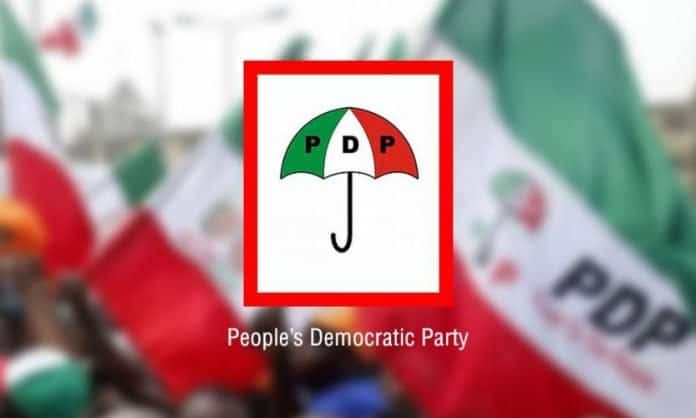Sir: The Peoples Democratic Party (PDP), once a dominant force in Nigerian politics, finds itself navigating turbulent waters. Internal strife, factionalism, and electoral setbacks have left the party grappling with an existential crisis, raising serious questions about its future viability and its capacity to regain its former glory. Understanding the depth of these challenges is crucial to charting a credible path forward.
The current crisis is multifaceted. A primary source stems from persistent leadership tussles and power struggles within the party’s hierarchy. Ambitions clash, loyalties are fractured, and accusations of betrayal and manipulation fly frequently. This internal conflict often spills over into public view, undermining the party’s image and eroding public trust. The lack of a clear and unifying vision further exacerbates this problem, leaving members disoriented and susceptible to competing factions.
Furthermore, the PDP’s electoral performance in recent years has been underwhelming. Repeated losses at the national level, including the just concluded Ondo governorship elections, have shaken the party’s confidence and exposed vulnerabilities in its strategies and outreach. This electoral decline can be attributed to several factors, including a failure to adapt to the evolving political landscape, a disconnect with the aspirations of a significant portion of the electorate, and accusations of internal sabotage during elections.
However, all is not lost. The People’s Democratic Party (PDP), still possesses considerable strengths. It boasts a substantial membership base across the country, a deep-rooted organizational structure in many states, and a legacy of governance at both the national and sub-national levels. These assets provide a foundation upon which a revitalized party can be built.
Prioritizing genuine reconciliation among warring factions is paramount. This requires open dialogue, compromise, and a willingness to put the party’s interests above personal ambitions. A robust internal dispute resolution mechanism, fairly applied, is crucial.
The party needs a clear and compelling vision that resonates with the aspirations of contemporary Nigerians. This requires a deep engagement with the challenges facing the country and the development of practical and achievable solutions. This vision should be articulated clearly and consistently across all party platforms.
Promoting internal democracy is essential to fostering inclusivity and minimizing the potential for manipulation and power struggles. Transparent and credible primary elections, where all members have a fair chance to participate, are crucial.
The party must actively engage young people and women, empowering them to take on leadership roles and ensuring their voices are heard. This not only broadens the party’s appeal but also brings fresh perspectives and ideas.
Improving communication strategies and strengthening outreach efforts to various segments of the population are essential. This involves utilizing modern media effectively and engaging directly with communities across the country. Establishing a robust mechanisms for accountability and transparency within the party’s operations will foster trust among members and the public. This includes transparent financial management and rigorous adherence to ethical standards.
The PDP’s future hinges on its ability to address these challenges effectively. A return to its former glory requires a fundamental shift in approach, prioritizing unity, internal democracy, and a clear vision for the country.
Only through a concerted effort to overcome internal divisions and reconnect with the Nigerian people can the PDP hope to regain its position as a major political force. The path ahead is challenging, but not insurmountable. The question remains, will the PDP rise to the occasion?
•Paul Onehi,

